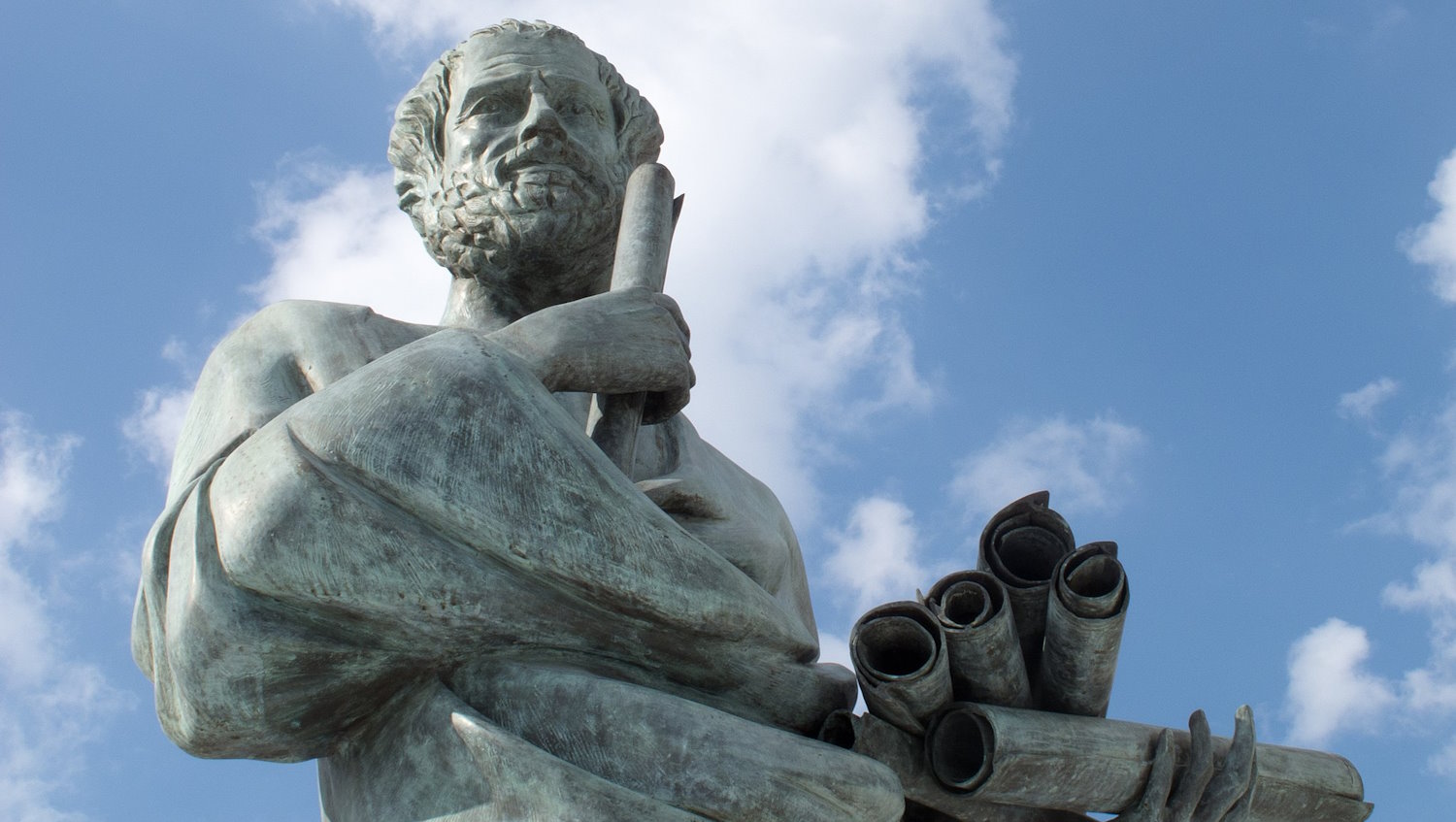Aristotle and education. We only have scraps of his work, but his influence on educational thinking has been of fundamental importance.
Aristotle (384 – 322 BC). Aristotle’s work was wide-ranging – yet our knowledge of him is necessarily fragmented. Only around 20 per cent of his written work has survived – and much of that is in the form of lecture and other notes. However, there can be no doubting his significance. He was:
A tireless scholar, whose scientific explorations were as wide-ranging as his philosophical speculations were profound; a teacher who inspired – and who continues to inspire – generations of pupils; a controversial public figure who lived a turbulent life in a turbulent world. He bestrode antiquity like an intellectual colossus. No man before him had contributed so much to learning. No man after could hope to rival his achievement
Jonathan Barnes (1982) Aristotle, Oxford: OUP.
There are only scraps of his work On Education, however we can get a picture of his ideas from surviving works. Aristotle believed that education was central – the fulfilled person was an educated person. Here I want to focus on those elements of his thought that continue to play a key part in theorizing informal education.
First, his work is a testament to the belief that our thinking and practice as educators must be infused with a clear philosophy of life. There has to be a deep concern for the ethical and political. We have continually to ask what makes for human flourishing? From this we should act to work for that which is good or ‘right’, rather than that which is merely ‘correct’.
Second, along with many others in his time, he placed a strong emphasis on all round and ‘balanced’ development. Play, physical training, music, debate, and the study of science and philosophy were to all have their place in the forming of body, mind and soul. Like Plato before him, he saw such learning happening through life – although with different emphases at different ages.
Third, he looked to both education through reason and education through habit. By the latter he meant learning by doing – ‘Anything that we have to learn to do we learn by the actual doing of it… We become just by doing just acts, temperate by doing temperate ones, brave by doing brave ones.’ (Aristotle Niconachean Ethics, Book II, p.91). Such learning is complemented by reason – and this involves teaching ‘the causes of things’. We can see here a connection with more recent theorists that have emphasized experience, reflection and connecting to theories.
Fourth, and linked to the above, Aristotle bequeathed to us the long-standing categorizing of disciplines into the theoretical, practical and technical. We have suffered at different points from a continuing emphasis in education, after Aristotle, on contemplation as the highest form of human activity. However, many writers have picked up on his concern for the practical – and for practical reasoning. We can this at work, for example, in the work of Carr and Kemmis (1986), and Grundy (1987) when they argue for a concern with process and praxis in education. It has also been a significant element in the reformulation of informal education by writers such as Jeffs and Smith (1990; 1994, 1996).
Aristotle’s bequest is not an unproblematic one. There is much to dislike about some of his ideas and the way in which subordinated groups are excluded from the benefits of education in his thinking. However, the study of his thought remains deeply rewarding for many educators.
Key texts: The two main texts are:
Aristotle The Nicomachean Ethics, London: Penguin. (The most recent edition is 1976 – with an introduction by Barnes).
Aristotle The Politics (A treatise on government), London: Penguin.
See, also:
Burnet, J. (1967). Aristotle on Education. Cambridge: Cambridge University Press.
Biographical material:
Barnes, J. (1982) Aristotle, Oxford: Oxford University Press. An lively and concise introduction to Aristotle’s work.
Jaeger, W. W. (1948) Aristotle, Oxford: Oxford University Press. Pretty much the standard work.
Websites: There are a lot to choose from. You can find full-text versions of Aristotle work, plus numerous potted biographies and term papers. For starters try the Perseus Project, or search The On-Line Books Page.
The opening image is of Aristotle (solut raiCC0-Wikimedia Commons).
How to cite this piece: Smith, M. K. (1997, 2001, 2020). Aristotle on education, The encyclopedia of pedagogy and informal education. [https://infed.org/dir/aristotle-and-education/. Retrieved: insert date].
© Mark K. Smith 1997, 2001, 2020
